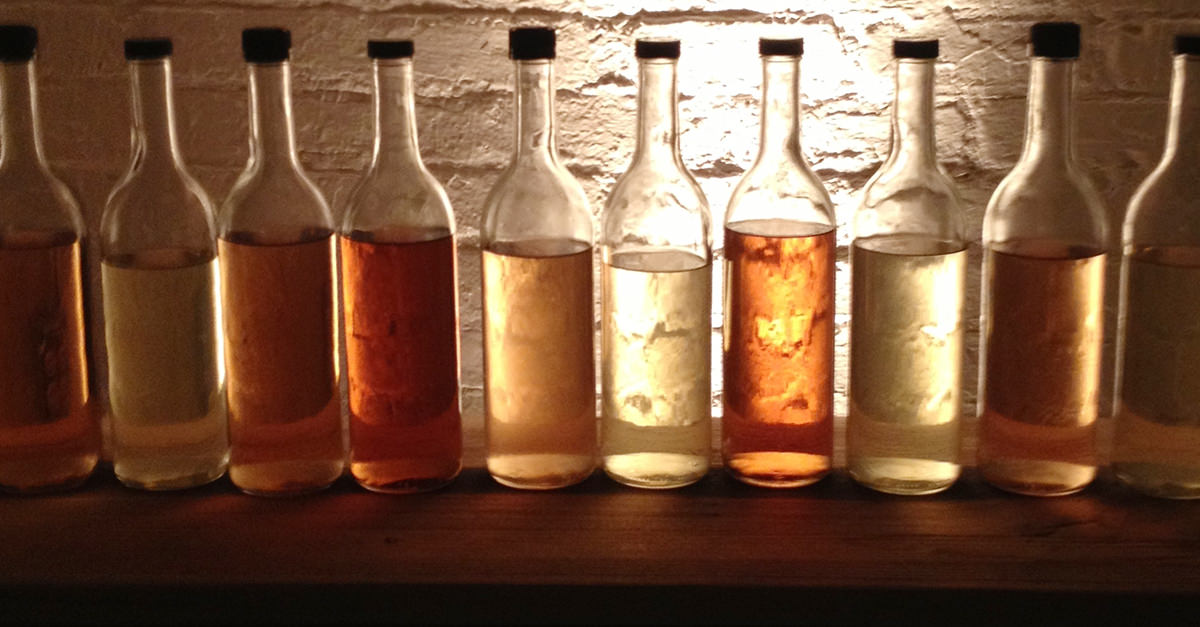Some Ideas on Liquor Wine And Spirits You Need To Know
Wiki Article
Liquor Act - Questions
Table of ContentsRumored Buzz on Liquor And WineAll about Liquor Wine And SpiritsThe smart Trick of Liquor That Nobody is Talking AboutLiquor - TruthsThe 6-Second Trick For Liquor And Wine

When something other than grape is used to make wine, the name of that substance is used in the name of the wine; for example, rice wine, pomegranate wine, elderberry wine, etc. Wine has been produced by human beings over a thousand of years. There are different types of wines; different varieties of grapes, strains of yeast used, region, alcohol content etc.
The alcohol content of wine usually ranges from 11 – 15% ABV (Alcohol by volume). Some table wines have the alcohol content of about 6%. Wine is typically lighter than other types of alcohol such as beer, whiskey, rum, etc. European wine usually tends to be classified by their regions.
Non-European wines tend to be classified according to the type of grape used; for example, Merlot and Point Noir. Wine is also classified into two major types known as red wine and white wine. Liquor is an alcoholic beverage made from distillation (liquor dispensers). Liquor is also known as distilled beverage, hard alcohol, and spirits.
Unknown Facts About Liquor For Sale
The process of distillation removes diluting agents like water from the mixture, increasing the alcohol content of the mixture. Alcoholic beverages such as brandy, rum, vodka, gin, tequila, whiskey, and scotch. liquor stores near me. All these beverages go through the process of distillation. Liquor can be served at room temperature without any additional ingredients or it can be served shaken or stirred with ice.Wines do not go through the process of distillation. Liquor goes through the process of distillation after fermentation. Wine has a low alcohol content, typically less than 15%. Liquor has a high alcohol content; the ABV is typically over 35%. Bordeaux, Chianti, Merlot, Point Noir and Rioja are some types of wines.
• Categorized under Food Differences Between Liquor And Spirits Liquor vs Spirits Liquor and spirits are two words that are usually interchanged with one another. People say that these two terms are the same but they certainly are not. In the early 1920s, all spirits meant liquor. However, in this day and age, these two terms were given different meanings particularly for the sake of bartenders who serve people’s drinks – lessening the chances of serving the wrong drink to their customers.
As compared to spirits, liquor is a lot sweeter mainly because of the added flavoring and sweetness it has. Also, liquor has higher alcohol content than wine and beer – you can try here mainly because of its concentrated nature during its distillation or compounding processes. Oftentimes, to compliment their bases, additional juices and flavors are added to give it a twist – such flavors could be of fruits, sugar canes, or potatoes.
The 8-Second Trick For Liquor Act
liquor emporium On the other hand, spirits are specific liquors that are created to have special flavors. The term “spirit” refers to a certain distilled beverage that has no added sugar and that has at least 20% alcohol by volume, or ABV. Once alcohol is distilled, it becomes a spirit. The process of distilling alcohol is called fermentation.Spirits are created by concentrating the alcohol in a ferment liquid by distilling it to become sweeter or for it to become flavored. Usually, the concentration of the alcohol in spirits range from 37% and 43%. At first, spirits are not sweet but when they goes through fermentation, gradually the taste starts to form.
Ultimatum Liquor and spirits are both known for being strong alcoholic drinks. Both go through distillation before they are served but they have different alcohol contents. Liquors must be distilled from fermented beverages and they have a higher proof rating, which is 40% alcohol content. Spirits, on the other hand, need to have at least 20% ABV. liquor act.
Top Guidelines Of Liquor Act
Ahh, winding down at the end of a long day—heavenly, liquor for coffee isn’t it? For many people, the post-work wind-down includes a myriad of things. Some people choose to get movement in, some choose reading, some take a nap, and some choose a mixture of all! In addition, many people choose to relax at the end of the day with a beverage.Obviously, the most common fruit used is the grape, but depending on the winery, different fruits are sometimes used. When it comes to the process, it goes like this: crushing, fermenting, bottling (in a simple sense). You can learn more about the winemaking process in one of our previous blogs! In comparison to spirits, wine has a much lower alcoholic content.
The alcohol evaporates in the container, but then the machine is cooled to collect the drops of alcohol. Those are then distilled to create the spirits you know: whiskey, vodka, gin, etc. Like we mentioned, spirits have a much higher alcohol content than wine. Most are around 40% ABV; however, some can even get up to 90% (which is basically pure alcohol).
The online wine store that has everything you need—you won’t want to miss out! .
Our Liquor Diaries
Something went wrong. Wait a moment and try again. Try again.Beer has more antioxidants than hard liquor, but their overall effect is small. Hard liquor, on the other hand, often has fewer or no carbohydrates. Image Credit: zmurciuk_k/i, Stock/Getty, Images Just the idea that beer and hard liquor have health benefits may seem pretty enticing. But like most good things in life, it's a little complicated.
Report this wiki page